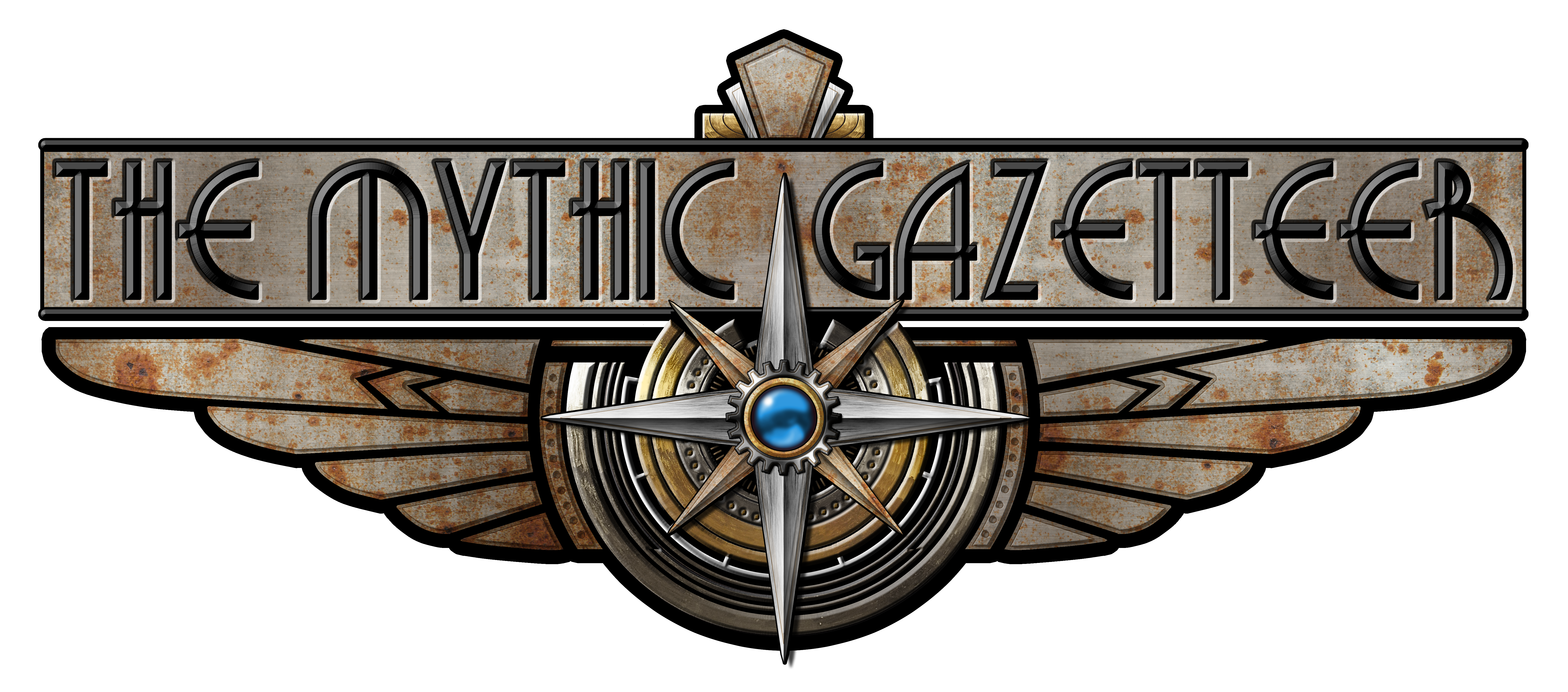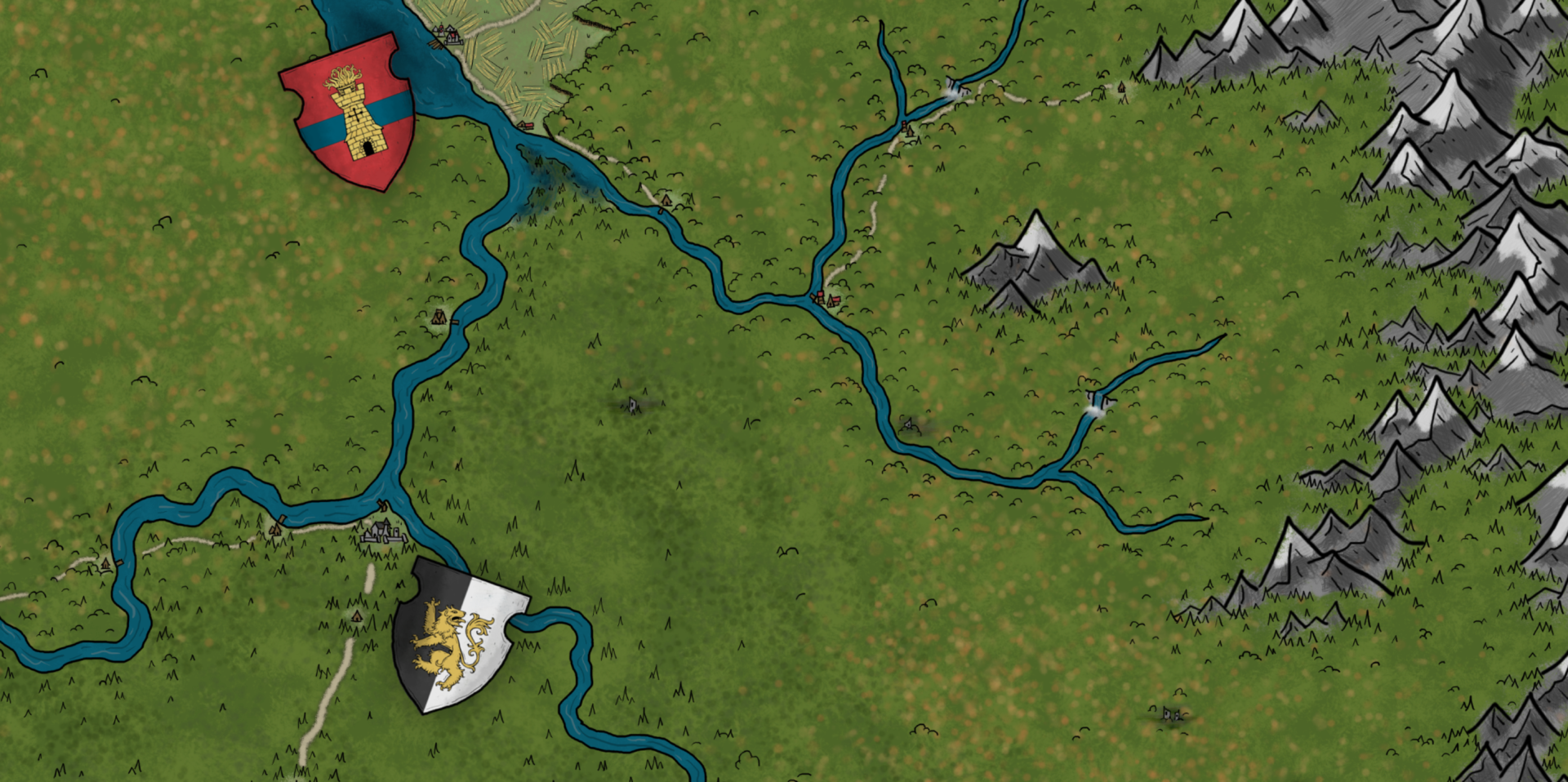So we’ve defined myth as a larger-than-life story which acts as a guide to one’s culture. Further, myths make the universal into something personally meaningful through the exercise of rituals (an ingredient we often forget in today’s world). We’ve determined that rolling dice is a kind of ritual for tabletop roleplaying games, and teased a few different “house rituals” different tables enjoy: beer and pretzels, terrain and minis, etc. We’ve determined tabletop RPGs at least tend toward larger-than-life stories. Finally, our hobby has the potential to teach us lessons about “the good.”
“Who’s to say?”
Please don’t think I’m forgetting the limitless variety present within our hobby. An encyclopedia of RPGs lists over 1000 different systems (to say nothing of settings within them). And that list is from 2008! In light of the current boom of Kickstarter self-publishing, I’m gonna upgrade that number to “countless” and call it good. I’m also going to say the homebrew campaigns and one shots people have run since Chainmail are “as numberless as the stars.” There are millions of special snowflake counterexamples out there, and that’s totally fine. The same variety is true for our own ideas about “the good,” but I don’t think that hampers our potential to tell mythic stories at the table.
Make it Your Own
In part 1, we said that ritual only becomes meaningful for people who are conscious of engaging in said ritual. Rolling dice is just rolling dice until we think of it as something more special than that. The takeaway is that we are an important ingredient in mythmaking, and I believe that extends beyond the ingredient of ritual.
I think we all prefer to tell stories at the table that excite us on one level or another. We play to have fun. I like what Evan Puschek calls “impish, challenging” fiction. It’s not challenging with the depth of information that makes up its world, that’s the modus operandi of worlds like Westeros and Middle-Earth. Instead, impish fiction challenges because it “rattles our perspective and exposes the false fronts of the fantasy we were born into.” I like stories writ large, with magnified characters and gripping action and intrigue. I like to finish a session and think “boy howdy, that taught me something about the real world.”
I also prefer fantasy games, but maybe you prefer green-skinned space babes, roaring 20s cosmic horror, feudal Japanese courtly intrigue, or literally anything else. Part of the magic of tabletop is that we get to chart our own course in worlds that don’t exist, to choose the settings and actions we want with a specificity no video game could ever achieve. One of the ingredients of mythic storytelling is simply to play settings you love. Work with your fellow players to tell tales you’ll smile about for years. Figure out your favorite stuff and go for it.
Once you’re playing your favorite games, the next step is to get inside the mind of your character. Don’t necessarily go full Method but consider the personal motivations behind your character’s actions. Ask yourself if those motivations are in you too, and what that might mean. Maybe it’s something to cultivate or maybe not, but at the very least it helps to liven up the roleplay.
My Myths
If I have three favorite fictional worlds, it’s Middle-Earth (particularly the Silmarillion era), the Star Wars galaxy, and the wulin of kung fu action movies. The first two are because of their extremes–the genesis and ancient past of Tolkien’s world and the vast technological wonderland of Lucas. The Silmarillion takes place a dizzying amount of time before Lord of the Rings (and Galadriel’s still on the scene!) while the other spans half of a whole damn galaxy. The sense of scale these stories inspire is the same as when I consider the age of the pyramids or the distance between us and the next star. Ours is a tiny place in the universe, no matter how huge and ancient Earth might seem. That kind of terrible dread will come in handy during my next Cthulhu game (“the creature rises from the ocean, looming like a galaxy over the atom of your fishing boat”).
Oddly enough, the Silmarillion teaches me a little about how to cope with that feeling of smallness. When King Fingolfin rides out alone across Ard-Galen to challenge Morgoth Bauglir, Tolkien says the Dark Lord “stood before the King like a tower, iron-crowned, and his vast shield, sable unblazoned, cast a shadow over him like a stormcloud.” Spoiler alert: that fight is pretty damn metal. This kind of tale has filled people with bravado in a lineage dating back through Beowulf and the Eddas, but it also makes me think of the existentialism I learned in college: choose to take a stand for something. Plenty of lessons to share among the connections I’ve just unearthed.
Kung fu movies are harder to pin down. They’re not explicitly part of the same world, for one thing. I like to think the genre has a few hallmarks: martial arts, societal corruption (oppressive overlords, gangs a plenty), and magic from the mundane camera-cut-super-jumping of Bruce Lee movies, to the chi-powered craziness of Stephen Chow, to the mystic serenity of Crouching Tiger, Hidden Dragon. That wuxia magic is all the fodder I need for fun gameplay, but the martial arts and societal corruption have plenty of mythic fuel. Many martial arts philosophies contain hints about the nature of power and how someone achieves it. I can’t hear “societal corruption” without the past couple decades of US history coming to mind. I don’t even need a political opinion to design a scenario that will allow players to explore their own!
You will have your own worlds and stories you hold dear, and your list will probably also be too long to share it all in a blog post (don’t get me started on my favorite movie, Speed Racer…). No matter which genres you choose, I guarantee you can find an insight worth sharing somewhere inside. If those insights make you understand life a little better–and especially if you share them–you’ll be mythmaking like a champ.
Tale as Old as Time
So instead of a fire sometime in the early morning of our species, we gather around tables or at desks. Instead of beating a rhythm on a drum and pointing to cave paintings, we have more sophisticated tools like dice and Roll20. Thousands of years later we still yearn to tell good stories. I want to tell stories about our gigantic universe, the uncertainty created by our infinitesimal place within it, and how we ought to live no matter how daunting it gets.
Let me know about your own favorite myths and what you see lying underneath them. What ideas can you find supporting the movies, books, etc. that you use to inspire games and characters?

